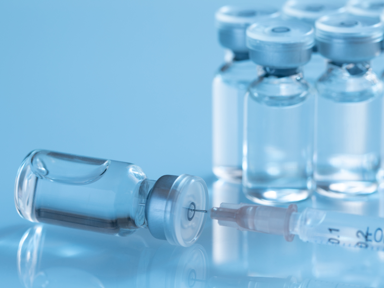firstwordpharmaJuly 29, 2021
Tag: Pfizer , COVID-19 , Vaccine
The effectiveness of Pfizer and partner BioNTech's coronavirus vaccine BNT162b2 steadily declines over time, slipping to roughly 84% for vaccinated people about four to six months after they got their second dose, according to data released Wednesday on the medRxiv pre-print server. The report was released on the same day Pfizer unveiled its second-quarter financial results during which it predicted sales from the vaccine would hit $33.5 billion this year, up from a previous $26-billion forecast.
The findings are from ongoing follow-up of a pivotal efficacy study that started last year and includes over 40,000 participants ≥12 years of age who were randomised to receive two doses of BNT162b2 or placebo, spaced 21 days apart. Endpoints reported in the medRxiv paper are vaccine efficacy against laboratory-confirmed COVID-19 up to six months post-vaccination, with March 13 being the cut-off date.
Over the entire period, researchers estimated the efficacy of BNT162b2 was about 91% against symptomatic COVID-19, in line with top-line data released by Pfizer and BioNTech in April. The latest findings found the mRNA vaccine's efficacy peaked between one week and two months after the second dose, at 96.2%. However, protection waned an average 6% every two months, reaching 90.1% in the period from two to four months, and then falling some more to 83.7% in the period from four to six months.

Against severe disease, the vaccine held steady at about 97% efficacy, but CEO Albert Bourla suggested protection may start to drop against more serious cases of infection as well. "We have seen also data from Israel that there is a waning of immunity and that starts impacting what used to be…100% [efficacy] against hospitalisation. Now, after the six-month period, [it] is becoming low 90s and mid-to-high 80s," he said, but "the good news is that we are very, very confident that a third dose, a booster, will take up the immune response to levels that will be enough to protect against the Delta variant." The study period ended before the rise of the fast-spreading Delta strain now taking hold in many regions around the world.
Bourla noted it is not uncommon for vaccines to decline in effectiveness over time, adding there is precedent for three-dose vaccines in other diseases. The executive said Pfizer plans to formally submit data to US regulators by mid-August about the benefits of a third dose. Pfizer and BioNTech recently revealed they intend to seek an emergency-use authorisation next month for a third booster of BNT162b2, citing recent data that suggest a drop in efficacy as the Delta variant spreads. However, both the FDA and US Centers for Disease Control and Prevention have pushed back on those plans, by issuing a joint statement shortly afterward saying they see no need for a third booster at the moment.
Meanwhile, the authors of the medRxiv paper said "ongoing follow-up is needed to understand persistence of the vaccine effect over time, the need for booster dosing, and timing of such a dose." They also said safety data are now available for about 44,000 participants ≥16 years, including over 12,000 who have had a minimum of six months of safety follow-up data after a second BNT162b2 dose. "The safety profile observed at a median of two months post-immunisation was confirmed up to six months…in this analysis," they said, adding "no cases of myocarditis were noted." The FDA recently added a warning about rare cases of heart inflammation in adolescents and young adults to fact sheets for BNT162b2 as well as Moderna's COVID-19 vaccine mRNA-1273.


Contact Us
Tel: (+86) 400 610 1188
WhatsApp/Telegram/Wechat: +86 13621645194
Follow Us:




 Pharma Sources Insight January 2025
Pharma Sources Insight January 2025


